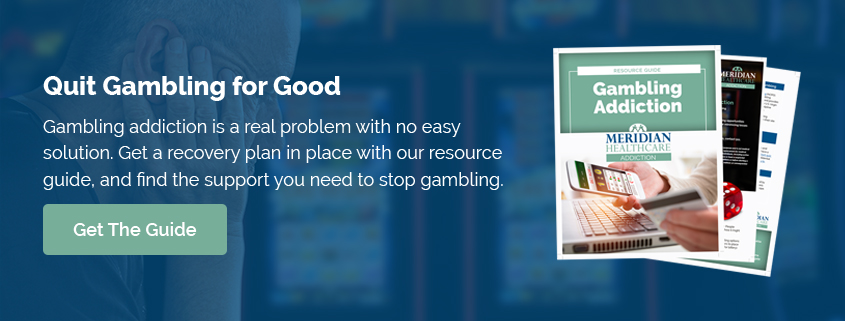Physical and Behavioral Signs of Addiction: Know How to Help
Watching a family member or loved one struggle with possible substance abuse can be excruciating.
Unfortunately, it can take time to realize that a loved one is struggling, so being able to recognize the signs of addiction is an important part of caring for the well-being of those with substance use disorder.
If you’re concerned that a loved one may need support and addiction treatment, look for these common symptoms of addiction.
Spotting the Signs of Addiction
Many people suffering from alcohol use or substance use disorder may not know they have a problem. And if they do, they may be trying to conceal it.
There are many reasons why someone may try to hide their problem, one of which is the stigma surrounding drug addiction. However, it is a much more common health condition than people realize. Around 10% of US adults have had a drug use disorder at some point in their life, according to the National Institute on Drug Abuse (NIDA).
Though people struggling with substance abuse may try their best to hide it, there are common symptoms of substance use and addiction that you can learn to recognize. The earlier you spot the signs of drug use, the easier addiction treatment can be.
Behavioral Signs of Drug Use
Drug use causes many behavioral changes, because substance abuse changes the chemicals in our brains (which can cause a change in how that person acts or speaks). The following behavioral signs may be a symptom of drug addiction or substance abuse*:
*NOTE: the following behavioral symptoms may also be signs of a mental disorder. Substance use disorder often co-occurs with other mental illnesses.
Change in Sleep Patterns
The use of stimulants like methamphetamine and cocaine may cause the user to experience insomnia or stay awake for longer periods than normal. But, it’s not just illicit drugs that have this effect; Adderall is a type of drug that’s legally prescribed but often abused and can also cause intense disturbances to sleep patterns.
Depressants cause issues with sleep, as well. Alcohol, the most commonly abused substance in the U.S., can also result in insomnia and sleep disturbances. Opioids and heroin may cause drowsiness during use.
Benzodiazepines like Valium and Xanax are a class of prescription drugs. A common behavioral sign seen while using benzodiazepines is longer or more frequent sleep, as well as nodding off during use.
If a family member or loved one develops a sudden behavioral change in their sleep patterns (such as falling asleep at unexpected times, struggling to sleep at night, or needing less sleep than usual), then this can be a sign of drug addiction.
Secretiveness
Despite being a common problem, there is still a stigma that surrounds substance use disorder and drug abuse. For this reason, those suffering from drug addiction may grow secretive and closed off from those around them.
If your friend or family member begins to act more withdrawn and secretive, this may be a warning sign of drug use, though it could also be a sign of other mental health conditions like depression.
Hyperactivity
Stimulants like amphetamines cause hyperactivity and bursts of increased energy. Other addictive substances that cause hyperactivity include prescription drugs like Adderall. If your friend or loved one’s temperament shifts to be more uncharacteristically hyper, this could be a sign of drug use.
Mood Swings and Changes in Mood
Mood swings are a common sign of drug addiction. Drug use changes chemicals in the brain, ultimately leading to sudden mood swings. Additionally, mood swings are also a common withdrawal symptom as the drug begins to detox from the body. A user may become irritable and angry faster, even if they were previously in a positive mood.
Financial Problems and Legal Problems
If a family member or loved one begins to suffer from an increase in financial problems or legal problems, it could be due to drug addiction.
Substance abuse is costly and only grows more so as addiction progresses. If someone who was previously financially stable begins to need more money, asks frequently to borrow money, or even begins to steal, substance abuse can be the root cause.
Drug use often lowers inhibitions and affects people’s ability to make sound decisions, which can also lead to legal problems that don’t directly indicate a substance abuse disorder. Frequent fights or traffic violations can be the result of the altered state of mind that’s a common side effect of substance abuse.
Gambling Addiction
Substance use is not the only addiction that can cause financial problems. Those who suffer from problem gambling may bet more money than they can afford, leading them to turn to friends and loved ones for financial support.
Meridian is a proud provider of gambling addiction treatment.
Physical Signs of Substance Abuse
In addition to behavioral symptoms, there are many physical signs that indicate someone is struggling with substance abuse disorder. Here are some of the early physical warning signs of drug addiction.
Changes in Pupil Size
Many substances cause dilated pupils regardless of lighting. If your family member or loved one’s pupils are often larger than normal, they may be using substances such as ecstasy, LSD, cocaine, MDMA, or ketamine.
A common side effect of opioid use is constrained pupils. If a friend or loved one’s pupils often seem smaller than normal, it can be a sign of substance abuse for morphine, methadone, or heroin.
Runny Nose
Some abused substances are taken through the nose, leading to irritation and nasal congestion as a side effect. After so many uses, it eventually can cause bloody noses and a deviated septum.
However, this is not necessarily the most telling symptom of drug addiction, because the person may be dealing with other health problems, such as allergies or frequent colds. But, runny nose in combination with other warning signs on this list may be an indication of a substance use disorder.
Weight Loss
Appetite and metabolism changes are common side effects of substance abuse. Stimulants in particular cause users to feel less hungry and increase hyperactivity, leading to weight loss.
Withdrawal symptoms often cause nausea, vomiting, and loss of appetite that can cause weight loss, as well.
Alcohol abuse can come with either weight loss or weight gain because of the substance’s different effects on the organs.
Bloodshot Eyes
Some substance abuse causes bloodshot eyes. If a family or loved one often has red eyes or is frequently using eye drops it could be a sign they are abusing marijuana, cocaine, prescription drugs (such as Valium or Xanax), or crack.
Understanding Drug Addiction
The stigma surrounding substance use disorder makes it a sensitive topic to discuss. People often treat it as a personal or moral failure and a reason to feel shame. This is not the case.
Substance abuse is a mental health issue, and many risk factors contribute to a person’s likelihood of developing an addiction. Those suffering from mood disorders, post-traumatic stress disorder, and other mental disorders have an increased risk of developing a drug addiction.
The most important thing to remember when you have a family member or loved one struggling with substance use disorder is that it’s not a reason for shame, but instead, for support.
Seeking Help for After You Spot the Symptoms of Addiction
If you are worried a family member or loved one is struggling with drug addiction, it can be hard to know what to do.
The next step after learning how to recognize the symptoms of addiction is to observe your loved one’s behavior closely. Discussing your concerns with a trusted family member or friend can help as well, but it’s important to do so confidentially and from a place of love.
If you see the physical symptoms or behavioral signs of drug addiction, it can be a long road before the individual is willing to get help from a treatment center. Contacting a health professional who specializes in mental health and drug addiction is the next step. Health professionals can discuss how to best approach someone suffering from a substance use disorder and assist in the process.
The health professional can help provide information about support groups and treatment programs to begin the addiction recovery process.
It is important that you take care of your and your loved ones’ safety and emotional well-being. A health professional can help with this when you are concerned someone you love is suffering from active drug addiction (whether that’s from legal prescription painkillers or illicit drugs).
Find Support With Meridian HealthCare
You and your loved ones don’t have to go through addiction recovery alone.
If you’re worried that someone you love is struggling with substance abuse or active drug addiction, Meridian HealthCare can help you navigate the process of addiction treatment and recovery with no shame or judgment. If someone you care about is showing signs of addiction, don’t wait until it’s too late to get help. We’re here for you and your family members. Reach out today to find hope for a better tomorrow.






